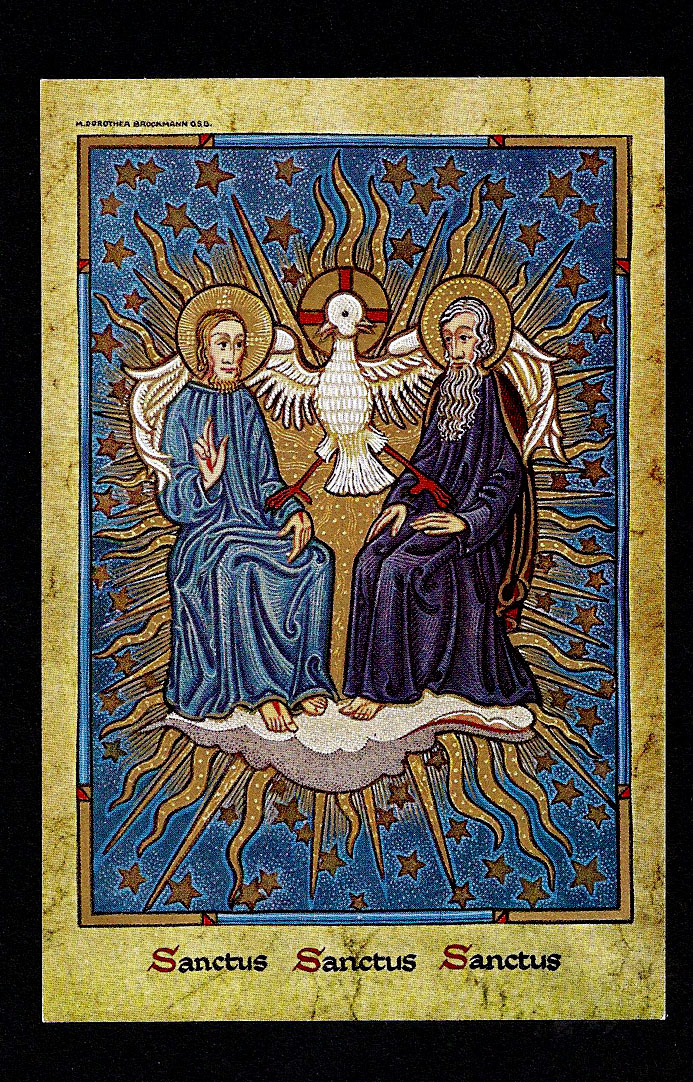No, not every Mass. But at those “in English”….
I don’t know about you, but it was at a busy time for me, and I’ve never paid much mind to World Youth Days, and any time I did happen to turn on EWTN it sounded like a pop concert or a county fair was going on. It can be depressing. And being depressed by Catholic liturgies makes being ready always to satisfy every one that asketh [me] a reason of that hope which is in [me] more difficult, you know?
But I had forgotten reading this last spring.
Fr David Friel, (whom many of you will know from Colloquium,) has a report over at Corpus Christi Watershed to gladden the heart.
It was revolutionary. I am speaking about the music used at the major English-speaking catechesis sessions…. During the days leading up to the main weekend events with the Holy Father, WYD pilgrims attend morning & afternoon catechesis sessions…. Not surprisingly, one of the largest groups of pilgrims at every WYD comes from the English-speaking world, so there is typically one very large English catechesis center.
Typically, these Masses feature pop concert-style praise & worship led by an on-stage band. This year, however, the preparations for these large-scale liturgies were entrusted to the Dominican Liturgical Centre in Kraków. Fr. Lukasz Misko, OP was invited to serve as Director of Music for the English-language liturgies, and he, in turn, invited fellow-blogger Christopher Mueller to serve as conductor for all of these liturgies (as he announced here). The result was an experience very different from the norm.
Notably, not a single hymn was sung during Mass. Praise & worship songs were used throughout the day at the arena, before and after Mass, but no garden variety metrical hymns or songs were sung during Mass, from the Sign of the Cross to the Final Blessing. This, in itself, is revolutionary.
During the entrance procession, offertory, communion, and recessional, a variety of musical forms were used. Most of the music at these points were responsorial texts written in four parts. A Gregorian alleluia and the Pater noster were chanted each day, and the first piece during communion each day was in Gregorian plainsong. The polyphonic pieces included: Jesu, Rex admirabilis (G.P. Palestrina), Anima Christi (Stefan Stuligrosz), Lift Me Up, O Jesus (Jacek Sykulski), In Te, Domine, speravi (Hans Leo Hassler), Per Crucem Tuam (Piotr Palka), Salve, Mater Misericordiae (arr. Mueller), Adoremus in aeternum (Gregorio Allegri), and Totus tuus (Msgr. Marco Frisina).
The Mass setting used each day was the Missa Orientalis by Jacek Sykulski. This was sung in four parts, and the text (interestingly for the English-language catechesis center) was in Latin.
On the final day of catechesis, Chris and his wife, Constanza, led a breakout session entitled: “How to Promote Polyphony and Chant at Your Parish.” For many of the pilgrims, this was their first experience of chant and polyphony. One hopes that some of them have been energized to learn more and to bring the music of the Church back to their parishes….
This sea change is not insignificant. It means that the project of advocating truly sacred music within the present liturgical movement is bearing practical fruit. Even three years ago, at WYD 2013 in Rio de Janeiro, no one would have expected what transpired at the Mercy Centre in Kraków.
That the Dominican Liturgical Centre was placed in charge of the English-language liturgies is an enormously important step. That Christopher Mueller was selected to serve as conductor is equally important. These surprising choices would not have been possible some years ago. What graced decisions they turned out to be!
Read the rest over there. Me, I’m going to go see what I can scare up on Youtube, etc.
Reason for our hope!



